SECURITY
FOR MULTIMODAL
LOGISTICS
Today’s supply chains are complex, global, and driven by customer needs. They are ecosystems of manufacturers, suppliers, partner companies, forwarders, logistics companies, and customers. Each has its own established way of doing things and IT infrastructure to support individual business processes. Even within a single organization, this leads to dispersed information silos. The information does not flow between partners, or it does but with an enormous amount of laborious human effort. All this prevents stakeholders from unlocking their full business potential.
OUR SOLUTIONS
How to achieve the kind of accurate visibility within the supply chain that would enable you to predict disruptions (even those resulting from ever-shrinking warehouse availability around ports and terminal facilities), respond to unplanned occurrences, and manage warehouse and in-transit inventory? Supporting ground handling operations, including available dock allocation, dynamic scheduling of pickup and delivery, and synchronizing payments with customs releases, is crucial for future-proofing.
Logistics/transportation control towers offer advance shipping notifications, delivery data, and track-and-trace information – an insight into inbound and outbound logistics. The need to act quickly has never been more pressing. To respond effectively, companies need real-time intelligence and actionable recommendations to improve decision-making and help mitigate disruptions and risk.
Problem
In the realm of multimodal logistics, complexity and dependencies between aging disparate systems and varying data interchange formats are significant daily challenges worldwide. The global supply chain upheaval, in evidence since early 2020, exposed the fractured state of logistics affairs between road, rail, air, sea, and inland waterway transportation.
Theoretical planning and optimization models of the so-called Smart Supply Chain Management have struggled to effectively deal with volatile results of unpredictable delays and manufacturing shortages of raw materials or finished goods. Meanwhile, process automation augmented with AI, machine learning, and scalable IoT, frequently integrated with Blockchain technology, has moved to the forefront, extending port-to-port transportation (unimodal models) to multimodal augmented capabilities. Many talk about integration, information, and intelligence to transform their supply chain, but the warehouses are full of clerks with ledgers and bar code scanners! In other words, more and more people are being involved to support commonly used control towers instead of leveraging the machine learning capability for track & trace and demanding a comprehensive solution.
LET'S TAKE A CLOSER LOOK
Technology is the cornerstone of transformation in supply chains and logistics. The use of big data to extract insights can help reduce friction and improve decision-making. That’s best achieved with purpose-built control towers designed to optimize core logistics functions.
The Block enRoll – Logistics/Transportation control tower
We specialize in modular, component-based next-generation control towers with the ability to handle multiple export and import messages formats, provide item and pallet level inventory scans, and support forecasting and planning models for supply chains impacted by port congestion, weather, strife, pandemic, and driver shortages. Real-time AI streams from every connected warehouse enable more effective control tower operations for status alerts, mitigation, and alternate solution pathways. It is built into the Dock enRoll, Asset enRoll, and Pay enRoll interconnected design.
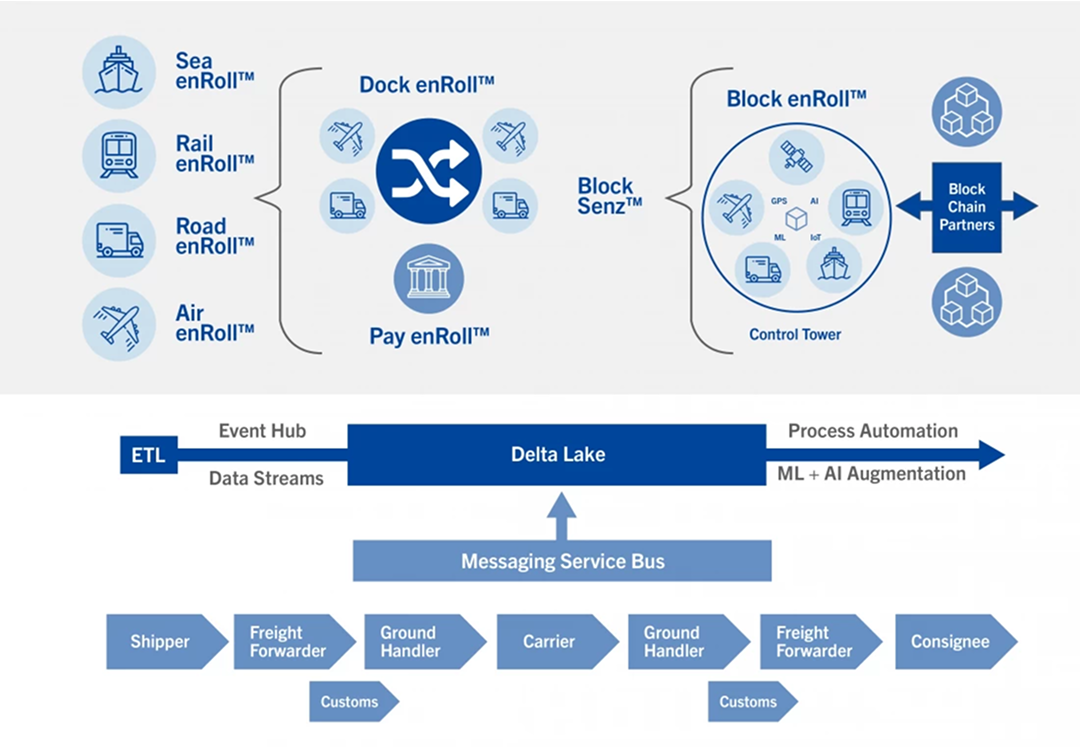
Block enRoll 2.0 is a multimodal manifold service for integrating diverse cargo handling systems, real-time customs releases, warehousing, transfers, tracking and tracing, scheduling and pickup, provenance and micropayments, based on blockchain validated delivery milestones, all the while augmenting human effort with AI, ML and IoT sensors.
A topology illustrating the interconnected modules of the Block enRoll 2.0 Manifold
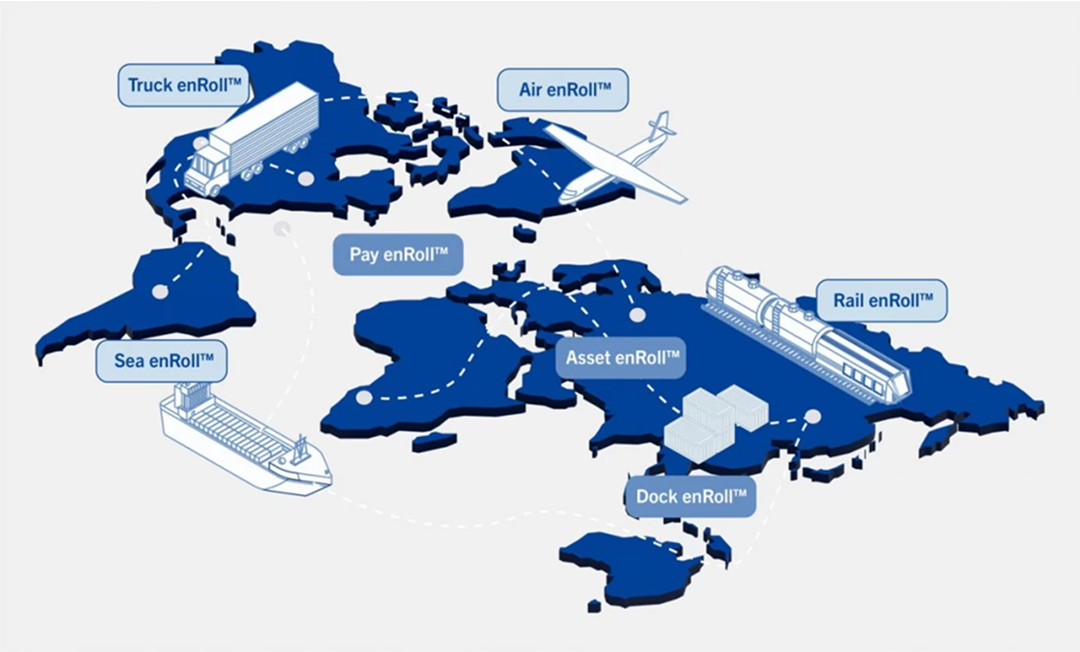
Here’s a quick look at the main components:
- Build an intelligent warehouse dock optimization model using our IoT-based BlockSenz network of vision and RFID sensors and by tracking every pallet entering or leaving through a warehouse dock door against electronic manifests fed by 3rd party ground handling message systems. We intelligently optimize the scheduling of truck pickups and customs clearance-based deliveries as well as enable the payment of terminal fees and storage charges through synchronized scheduling of dock availability based on AI streams, including real-time weather, traffic, distance, congestion, and delay reports.
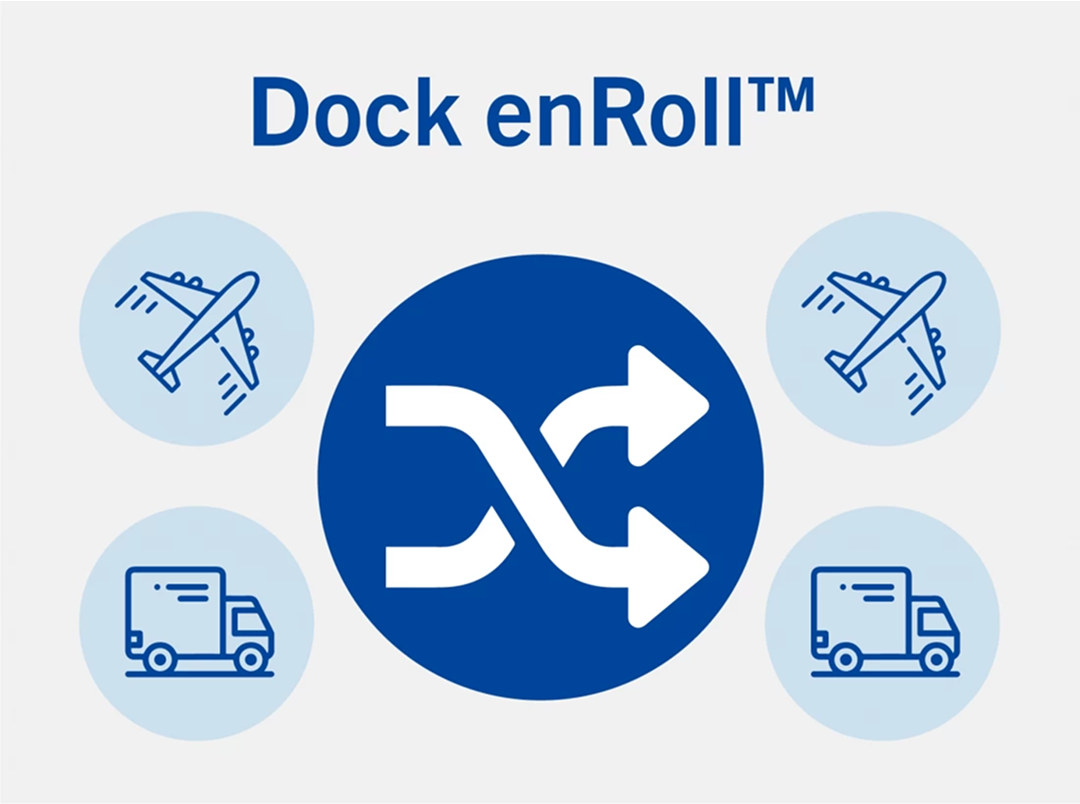
- Forecasting estimates of available-to-promise (ATP) inventory, including inventory in-motion, is critical for JIT supply chain optimization and planning. By integrating with 3rd party WMS systems and using our IoT-based BlockSenz RFID sensor fabric, we offer an industrial solution for the global track, trace and provenance at the item level while rolled through at the pallet level. Block enRoll integrated is an integrated service for authentication, validation, and provenance review from supplier to consignees.
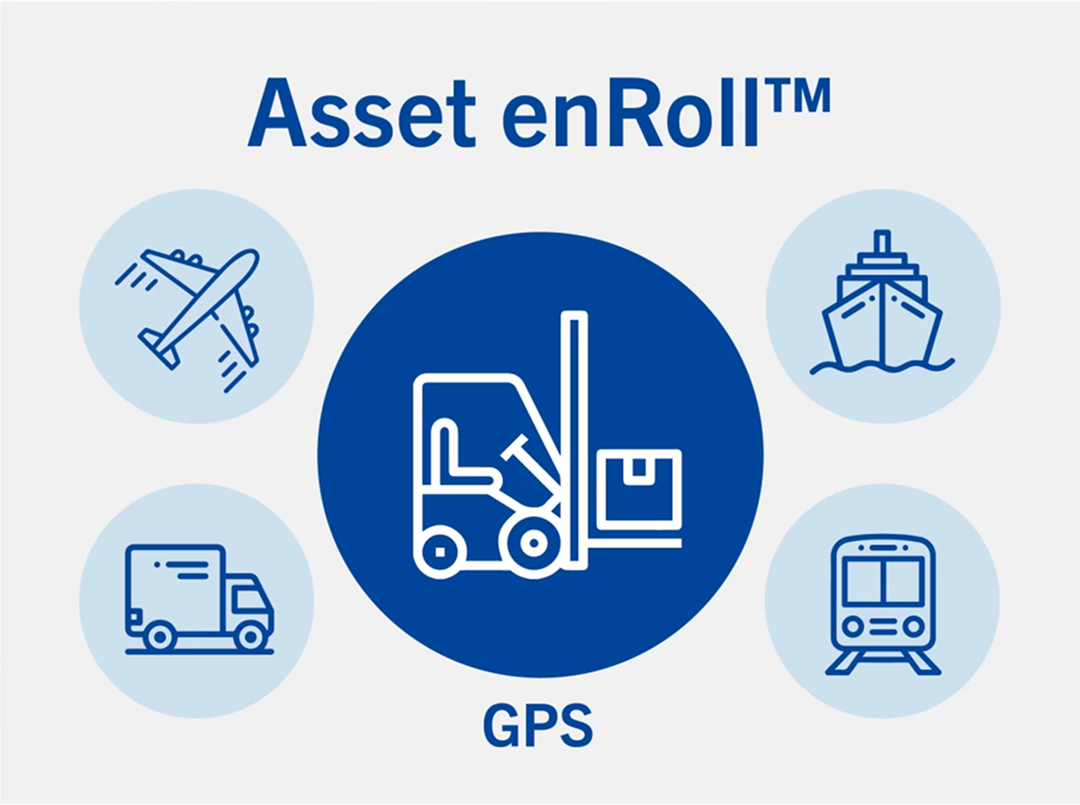
- Utilize Blockchain technology to offer milestone performance payments to the supply chain participants based on documented, authenticated, and verified activity or delivery in stages. Extend the model to include drayage, handling and storage fees, and other charges. We are connected with a number of 3rd party payment providers for direct payments, including Block enRoll integrated for automated payment verification and disbursement control.
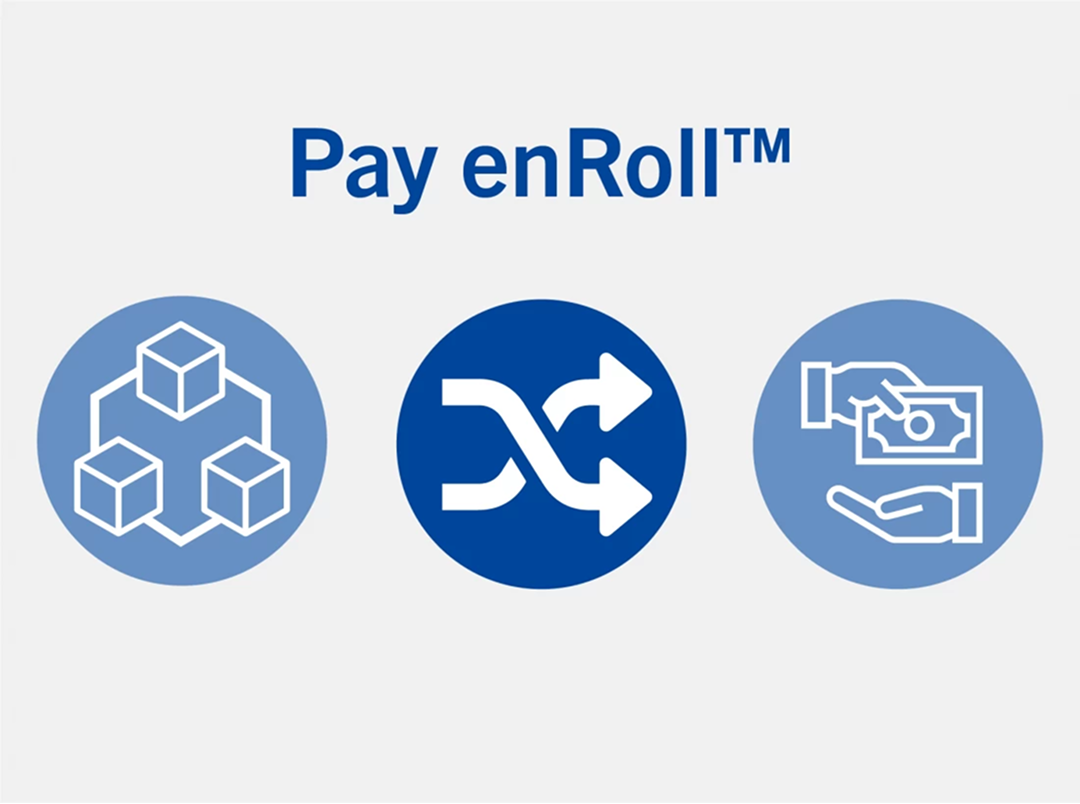
- Cold Chain data tracking with the BlockSenz temperature sensor fabric can be networked across multiple warehouses and within refrigerated containers and packages to provide real-time sensing of ambient temperature, humidity, and alert conditions. All records are immutably recorded in Block Enroll for 3rd party verification, observability, and compliance for temperature-critical perishables, liquids, gases, and other sensitive shipments.
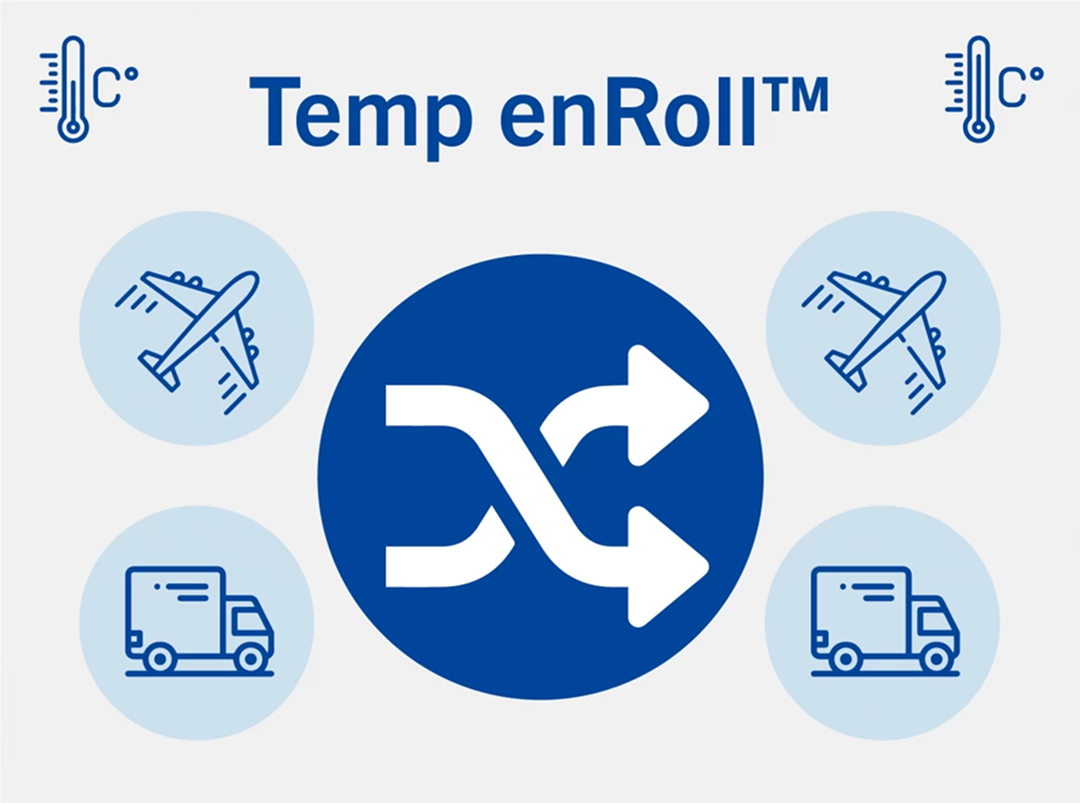
Key differentiators:
- Block enRoll can serve multimodal logistics, while others are still optimizing on the unimodal point-to-point models.
- We are the only company using the sensor fabric to employ inventory control towers for demand forecasting.
- Big Data Integration pipelines with massive data volumes are to be expected daily as sensor-based IoT devices and autonomous robots are deployed in logistics warehouses. Our cloud-based lakehouse architecture is well-positioned to handle terabytes of message flows that can be activated for a growing ecosystem of shippers, 3PL logistics, intermodal transport operators, customs authorities, port and terminal operators, warehouse operators, carriers, banking and insurance intermediaries, and consignees.
- Many processes in multimodal handling are still manual or semi-automated. Partnering with a group of specialists from Rhenus Automation enables us to leverage in-depth process automation expertise and apply it in real-time Cargo Interchange Message processing and document ingestion and management to support AI-augmented control tower operations models for customers.
ABOUT RHENUS AUTOMATION PARTNER
The IBM Sterling Supply Chain Intelligence Suite leverages AI and automation to optimize supply chain operations, enhancing resilience, agility, and sustainability. This solution provides real-time visibility and actionable insights to rapidly address disruptions, improve inventory management, and streamline traceability with blockchain technology. It allows organizations to collaborate more effectively, make data-driven decisions, and adapt workflows to dynamic challenges, making supply chains smarter and more sustainable.
The IBM Sterling Supply Chain Intelligence Suite combines AI and automation to make supply chains more adaptive, sustainable, and resilient. Key features include:
- Real-time visibility for proactive supply chain monitoring and management.
- AI-driven insights to predict and respond to disruptions swiftly.
- Inventory optimization to ensure efficient stock levels and reduce waste.
- Blockchain integration for secure, end-to-end traceability.
- Customizable workflows to adapt processes to shifting demands.
- Collaboration tools for seamless partner and supplier communication.

Contact
